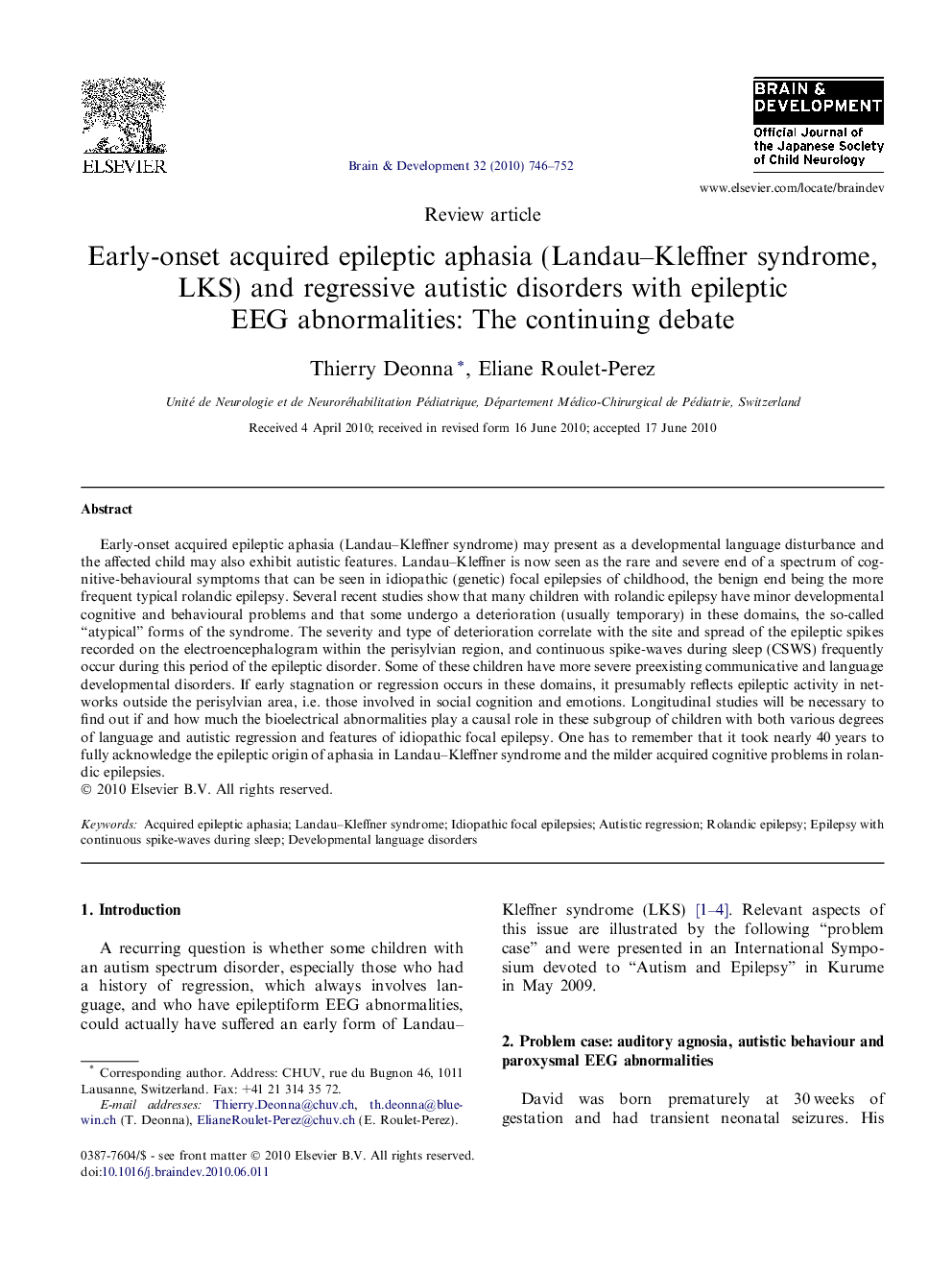| Article ID | Journal | Published Year | Pages | File Type |
|---|---|---|---|---|
| 3037904 | Brain and Development | 2010 | 7 Pages |
Early-onset acquired epileptic aphasia (Landau–Kleffner syndrome) may present as a developmental language disturbance and the affected child may also exhibit autistic features. Landau–Kleffner is now seen as the rare and severe end of a spectrum of cognitive-behavioural symptoms that can be seen in idiopathic (genetic) focal epilepsies of childhood, the benign end being the more frequent typical rolandic epilepsy. Several recent studies show that many children with rolandic epilepsy have minor developmental cognitive and behavioural problems and that some undergo a deterioration (usually temporary) in these domains, the so-called “atypical” forms of the syndrome. The severity and type of deterioration correlate with the site and spread of the epileptic spikes recorded on the electroencephalogram within the perisylvian region, and continuous spike-waves during sleep (CSWS) frequently occur during this period of the epileptic disorder. Some of these children have more severe preexisting communicative and language developmental disorders. If early stagnation or regression occurs in these domains, it presumably reflects epileptic activity in networks outside the perisylvian area, i.e. those involved in social cognition and emotions. Longitudinal studies will be necessary to find out if and how much the bioelectrical abnormalities play a causal role in these subgroup of children with both various degrees of language and autistic regression and features of idiopathic focal epilepsy. One has to remember that it took nearly 40 years to fully acknowledge the epileptic origin of aphasia in Landau–Kleffner syndrome and the milder acquired cognitive problems in rolandic epilepsies.
